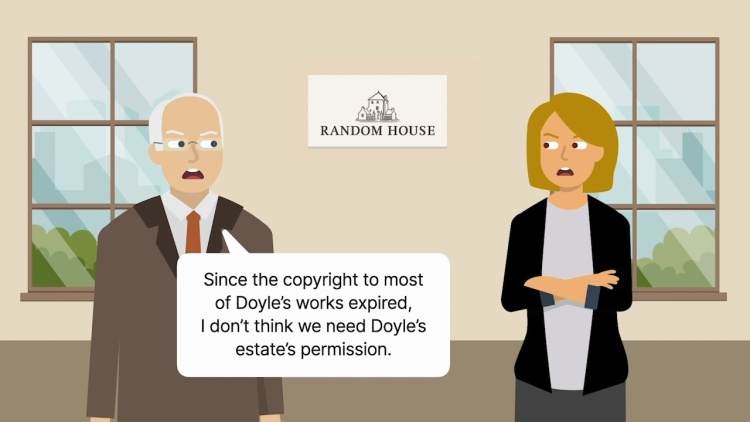Klinger v. Conan Doyle Estate, Ltd.
United States Court of Appeals for the Seventh Circuit
755 F.3d 496 (2014)
- Written by Lauren Petersen, JD
Facts
Arthur Conan Doyle published 56 stories using the Sherlock Holmes character. The dates that these stories were published spanned from 1887 to 1927. In 1998, copyright legislation passed that extended the copyrights on works published on or after 1923. This legislation extended the copyrights on Doyle’s last 10 books that were published from 1923 until 1927. However, the copyrights on Doyle’s books published prior to 1923 expired, placing the contents and characters of those books in the public domain. In 2011, Leslie Klinger (defendant) published a compilation of stories inspired by or using the Sherlock Holmes character. Klinger’s publisher obtained a license to do so from the Conan Doyle Estate, Ltd. (Doyle Estate) (plaintiff) for $5000. Based on his book’s success, Klinger decided to publish a sequel compilation of Holmes-inspired stories. The Doyle Estate threatened to block distribution of the sequel if Klinger did not pay for a license for the sequel. Klinger sued the Doyle Estate, seeking a declaratory judgment that Klinger was entitled to use material from the pre-1923 Sherlock Holmes stories that were no longer under copyright. The district court issued Klinger a declaratory judgment, and the Doyle Estate appealed.
Rule of Law
Issue
Holding and Reasoning (Posner, J.)
What to do next…
Here's why 907,000 law students have relied on our case briefs:
- Written by law professors and practitioners, not other law students. 47,100 briefs, keyed to 996 casebooks. Top-notch customer support.
- The right amount of information, includes the facts, issues, rule of law, holding and reasoning, and any concurrences and dissents.
- Access in your classes, works on your mobile and tablet. Massive library of related video lessons and high quality multiple-choice questions.
- Easy to use, uniform format for every case brief. Written in plain English, not in legalese. Our briefs summarize and simplify; they don’t just repeat the court’s language.





